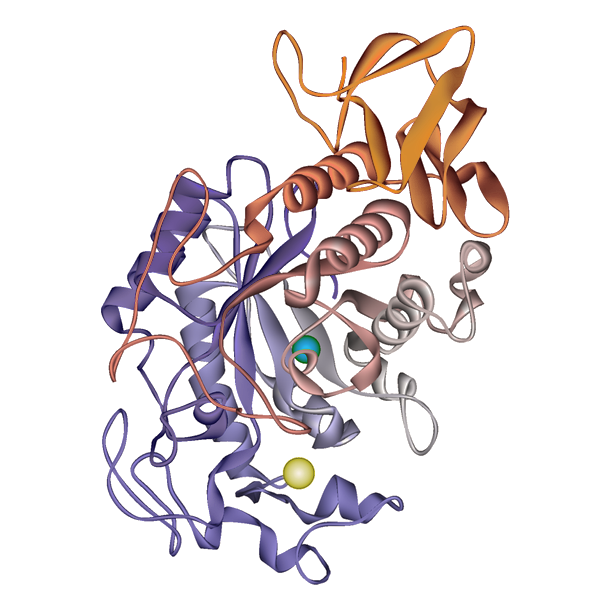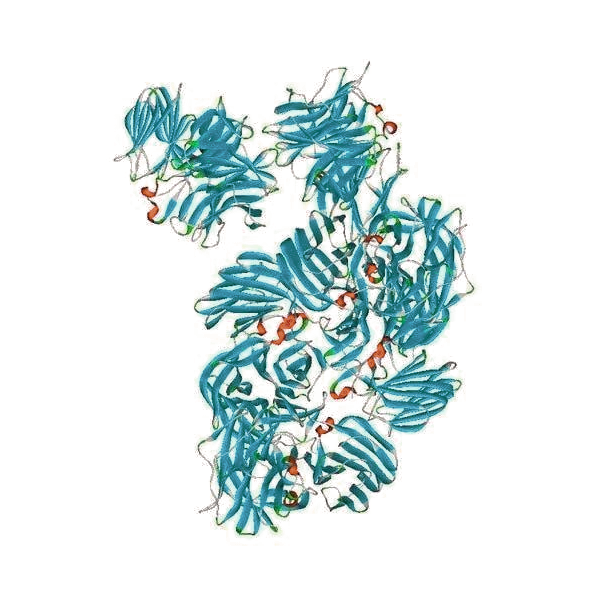


Digestive Enzymes
120 vegetarian capsules
Buy two or more & save 5%
-
Supports nutrient breakdown/absorption
-
Additive-free
-
Enzymes for fat, carbs, casein and gluten*
-
Non-GMO
-
Free of common allergens
Frequently Bought With



Price & Dosage Calculator
Use our dosage calculator to determine how long your product will last based on your household size.
What Experts Say

Jaclyn Harwell
Ingredients
Amylase
Glucoamylase
Invertase
Lactase
Maltase
Alpha-Galactosidase
Beta-Glucanase
Phytase
Protease Peptidase Complex
Lipase
Cellulose (base for encapsulation)
Vegetarian Capsule

Amylase
The digestive enzyme amylase, found in saliva and pancreatic fluid, helps convert starch and glycogen into simple sugars.*

Glucoamylase
A digestive enzyme naturally released by the small intestine. It helps break down carbohydrates and starch found in most veggies, for easy absorption by the body.*

Invertase
This digestive enzyme is found in our mouths, and starts the process of chemical digestion. It also helps break down sugar into fructose and glucose.*

Lactase
A digestive enzyme in the small intestine of humans and other mammals. It's essential to the complete digestion of whole milk, as it breaks down lactose, a sugar which gives milk its sweetness.*

Maltase
This digestive enzyme is present in saliva and pancreatic juice, yeasts, bacteria and plants. It helps break down maltose and similar sugars to form glucose.* Maltose develops in many starchy vegetables like sweet potatoes, nuts and legumes when they're digested or cooked.

Alpha-Galactosidase
The digestive enzyme alpha-galactosidase is naturally found in green coffee beans, and several other plants and mammals, including humans. It's been shown to reduce gas production following a meal rich in fermentable carbs by breaking down the sugar-fat complexes commonly found in hard-to-digest foods like broccoli, cabbage, peanuts and beans.* And it may be helpful in patients with gas-related symptoms.*

Beta-Glucanase
Beta-Glucanase is a group of carbohydrate enzymes which breaks down bonds within beta-glucan, found in heavy grains like oats, barley and rye as well in fungi like candida.*

Phytase
This digestive enzyme is a key to bone health.* Commonly found in plant material, it helps break down grains, legumes, seeds and corn.

Protease Peptidase Complex
One of the few digestive enzymes found in the pancreas and the stomach that helps with the breakdown of proteins like gluten and casein, rich in the amino acid, proline.* They also play a vital role in blood clotting and cell division.*

Lipase
This digestive enzyme — produced in the pancreas, mouth and stomach — helps break down dietary fats so the intestines easily absorb them. It also allows nutrients and waste to move through cellular walls.*

Cellulose (base for encapsulation)
Cellulose is a naturally occurring substance (ie a long chain of sugar molecules) that's an important cellular component of green plants. We chose this ingredient to satisfy the needs of our most sensitive customers.

Vegetarian Capsule
Hydroxypropyl methylcellulose (HPMC), water. Our vegetable (vegan) capsules consist of only two ingredients: HPMC and purified water. HPMC is derived from vegetable cellulose of either pine or poplar. 100% natural, these capsules contain no preservatives, no gelatin, wheat, animal by-products or starch.
Amylase

Amylase
The digestive enzyme amylase, found in saliva and pancreatic fluid, helps convert starch and glycogen into simple sugars.*
Glucoamylase

Glucoamylase
A digestive enzyme naturally released by the small intestine. It helps break down carbohydrates and starch found in most veggies, for easy absorption by the body.*
Invertase

Invertase
This digestive enzyme is found in our mouths, and starts the process of chemical digestion. It also helps break down sugar into fructose and glucose.*
Lactase

Lactase
A digestive enzyme in the small intestine of humans and other mammals. It's essential to the complete digestion of whole milk, as it breaks down lactose, a sugar which gives milk its sweetness.*
Maltase

Maltase
This digestive enzyme is present in saliva and pancreatic juice, yeasts, bacteria and plants. It helps break down maltose and similar sugars to form glucose.* Maltose develops in many starchy vegetables like sweet potatoes, nuts and legumes when they're digested or cooked.
Alpha-Galactosidase

Alpha-Galactosidase
The digestive enzyme alpha-galactosidase is naturally found in green coffee beans, and several other plants and mammals, including humans. It's been shown to reduce gas production following a meal rich in fermentable carbs by breaking down the sugar-fat complexes commonly found in hard-to-digest foods like broccoli, cabbage, peanuts and beans.* And it may be helpful in patients with gas-related symptoms.*
Beta-Glucanase

Beta-Glucanase
Beta-Glucanase is a group of carbohydrate enzymes which breaks down bonds within beta-glucan, found in heavy grains like oats, barley and rye as well in fungi like candida.*
Phytase

Phytase
This digestive enzyme is a key to bone health.* Commonly found in plant material, it helps break down grains, legumes, seeds and corn.
Protease Peptidase Complex

Protease Peptidase Complex
One of the few digestive enzymes found in the pancreas and the stomach that helps with the breakdown of proteins like gluten and casein, rich in the amino acid, proline.* They also play a vital role in blood clotting and cell division.*
Lipase

Lipase
This digestive enzyme — produced in the pancreas, mouth and stomach — helps break down dietary fats so the intestines easily absorb them. It also allows nutrients and waste to move through cellular walls.*
Cellulose (base for encapsulation)

Cellulose (base for encapsulation)
Cellulose is a naturally occurring substance (ie a long chain of sugar molecules) that's an important cellular component of green plants. We chose this ingredient to satisfy the needs of our most sensitive customers.
Vegetarian Capsule

Vegetarian Capsule
Hydroxypropyl methylcellulose (HPMC), water. Our vegetable (vegan) capsules consist of only two ingredients: HPMC and purified water. HPMC is derived from vegetable cellulose of either pine or poplar. 100% natural, these capsules contain no preservatives, no gelatin, wheat, animal by-products or starch.
FAQ
Why are digestive enzymes so important?
Enzymes are essential for healthy digestion and a healthy body. They work with other chemicals in the body, such as the stomach acid and bile, to help break down food into smaller molecules for a wide range of bodily functions critical for life.*
When we're healthy, digestive enzymes are secreted along the digestive tract to break food down into nutrients and energy and then eventually be secreted out into waste matter. In other words, you can't live without them!*
What types of food contain digestive enzymes?
You can find digestive enzymes in fungi, plants and in raw and cultured foods like yogurt, kefir, kimchi and other fermented veggies.
Are Smidge® Digestive Enzymes safe for children?
Yes, but run it by your doc first. Smidge® Digestive Enzymes are safe for children 3 and over. For toddlers and sensitive adults, a smaller dose may be obtained by pulling apart the capsule, taking a small portion of the contents and mixing with food.
Warning: Smidge® Digestive Enzymes are not recommended for children under the age of 3, unless otherwise prescribed by a physician. Also, please avoid if you have mold sensitivities, an Aspergillus allergy, or a compromised immune system, as the enzymes are derived from Aspergillus (fungus) via fermentation.*
Why isn't my body producing enough digestive enzymes?
First, run this important question by your certified medical practitioner.
When your body doesn't produce enough digestive enzymes (due to an increased consumption of highly processed food and chemicals), diseases of the stomach and small intestine begin to occur. Once the number and types of digestive enzymes produced naturally in our system are diminished, digesting food and fighting infection may become more challenging.
You may be able to improve digestive issues with the help of a quality enzyme supplement like Smidge®, in addition to removing sugars, grains, processed dairy, and industrial vegetable and seed oils from your diet (as directed by your practitioner).*
Where are the ingredients sourced and where is the supplement made?
Our Digestive Enzymes are sourced and produced in the U.S. :)
What are the enzymes derived from?
The enzymes are derived from Aspergillus (fungus) via fermentation. For this reason, we do not recommend the product for individuals who have an Aspergillus allergy, mold sensitivities or a compromised immune system.*
As always, consult with a certified medical practitioner, preferably one familiar with gut health, before starting any new supplement.
What's the difference between Smidge® Digestive Enzymes and Smidge® HCl + Enzymes?
Smidge® Digestive Enzymes is a digestive supplement for people who have adequate HCl levels but want to maximize their absorption of fats, proteins and hard-to-digest carbs. It includes all the same enzymes as Smidge® HCl + Enzymes, plus additional enzymes to support the digestion of beans, cruciferous veggies and other carbohydrates. You can even open up the capsules to consume, since it does not contain HCl. Smidge® Digestive Enzymes are a great choice for the whole family or those new to enzymes to support comfortable digestion and nutrient absorption.
Smidge® HCl + Enzymes is our original formula that contains HCl (hydrochloric acid) and pepsin. It's ideal for people who have occasional acid reflux, gas or bloating and seek a gentle dose of HCl and pepsin with their digestive enzymes. Many of our customers following the Gut and Psychology Syndrome (GAPS) diet or other real food protocols that call for restricting grains and carbs take it, as it helps with the breakdown of meat and animal proteins.* It also helps restore HCl levels and maximizes the absorption of fats, proteins and minerals.
Many of our customers have both on hand depending on what’s on their plates!
Can I use Smidge® Digestive Enzymes with Smidge® HCl + Enzymes?
Yes! Smidge® Digestive Enzymes can be used in tandem or sequentially with Smidge® HCl + Enzymes, which contains HCl and pepsin. Some customers start with Smidge® HCl + Enzymes and then move onto only Smidge® Digestive Enzymes after their HCl levels are up. Some use the two in tandem for different meals over the same day.
Tell me more about the DPP-IV enzymes and how they support the breakdown of gluten.
Dipeptidyl peptidase IV (DPP-IV) is one of the few enzymes that can help with the breakdown of proteins like gluten and casein, rich in the amino acid, proline.*
Most health experts recommend using it as a safeguard if you're worried something may contain gluten or casein.* In other words, the DPP-IV enzymes in Smidge® Digestive Enzymes capsules serve more as an additional safety net than as something that can reverse the gluten or dairy challenge you're facing.*

























